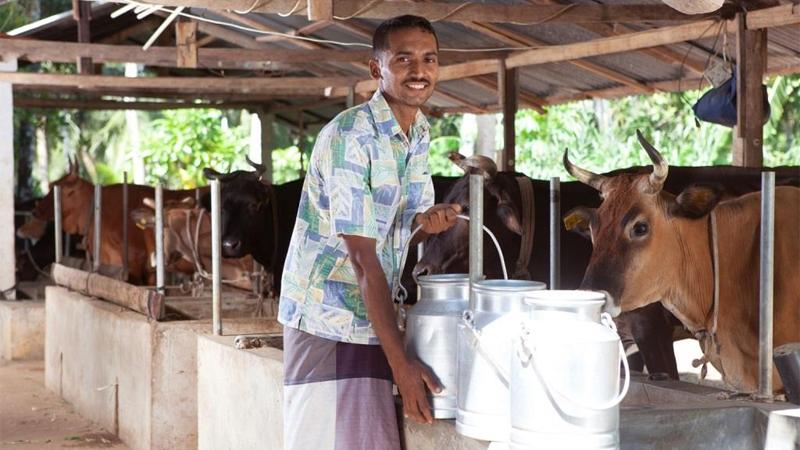
The forex crisis in Sri Lanka has severely impacted many industries in the economy, including the dairy industry. As an industry with endless potential to help the economy, the dairy industry is one of the most important industries in the country. However, rising costs, scarcity of feed, vitamins, fuel and fertiliser, and the difficulty in importation of maize has greatly impacted the industry’s survival.
The All Island Dairy Association (AIDA) calls for immediate action to prioritise the import of raw materials to help sustain the future of the industry.
President of AIDA, Binesh Pananwala said, “Proper micronutrients and vitamins from quality feed is an essential part in our industry as the animals play an integral role in the supply chain.
It is imperative that feed such as maize and silage is readily available as it would greatly assist in sustaining the industry. However, the dependency on importing these commodities, and the restrictions placed on imports due to the forex crisis is crippling the industry.”
The lack of quality animal feed has largely disrupted the dairy industry’s supply chain.
Veterinary professionals have continuously expressed their growing concern for the well-being of these animals due to the shortage of feed and medicines such as antibiotics and anaesthetics required for operations.
Consultant and General Manager of AIDA, A.C.H. Munaweera said, “The industry is already struggling to sustain itself and due to the lack of fuel, storage facilities, fertiliser, and feed, we are unable to meet the demand for fresh milk and powdered milk.”
“The shortage of foreign exchange makes it difficult for banks to honour Letters of Credit (LCs) for importers to bring in raw materials needed to sustain the industry,” he said.
Immediate Past President of AIDA, Nishantha Jayasooriya said, “If conscious decisions and changes to fiscal and monetary policy are not made, the industry will suffer even further as it will be unable to meet the demand for both fresh milk and milk powder,” he said. The local production of milk is drastically falling due to the lack of quality feed, and the supply of imported milk is reducing due to the rising prices. Currently, locally manufactured feed is used to maintain the livestock, however, due to the lack of fertiliser and various other concerns, the supply of feed is diminishing.
If the feed does not meet the nutritional standard, the consequences would be severe as it would affect the health of approximately 900,000 animals.
Treasurer of AIDA, Gamini Rajapaksha said, “Some of the leading dairies are unable to operate their plants due to the lack of power, which forces them to reject the milk from the farmers. This has directly affected the livelihood of rural dairy farmer.
Chilling tanks at milk collection centres cannot be operated, causing large volumes of milk to be discarded. Another aspect is the import of equipment and spare parts for the dairy processing plants. Many dairy plants will be compelled to stop production altogether unless they are able to import spare parts within the next few weeks.”
Vice President of AIDA, Asoka Bandara said, “We need to set up protocols that ensure the availability of raw materials such as fertiliser, fuel, and feed for the animals for Sri Lanka’s dairy industry to develop and become self-sufficient.
“The result of a complete destabilisation of the industry would not only mean a diminished supply of milk but mass unemployment as well.”
The dairy industry is in dire need of revival, as its deterioration will have a great impact on a plethora of industries and consumers alike. It is imperative that those measures are put in place to prioritise imports of raw materials for feed, which would lead to high levels of production and sustainability.
